Wellness Tips To Help Beat Stress & Anxiety
Posted on 19th April 2020 by Dr Yusra Al-Mukhtar
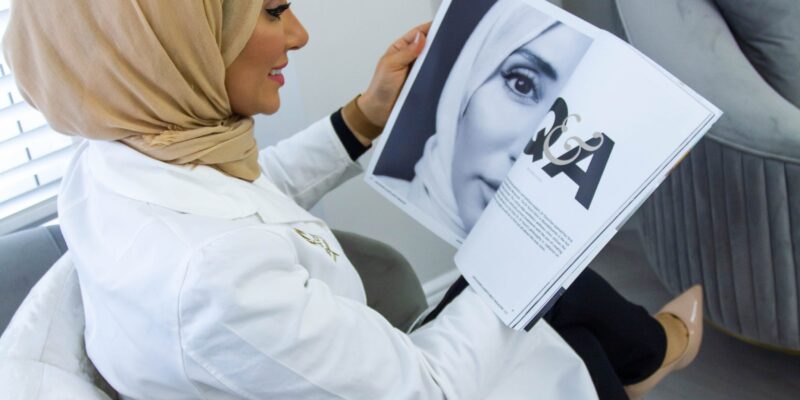
The COVID-19 pandemic is an extremely worrying time for us all – and it’s totally normal to feel anxious or stressed about it.
We’re here today to discuss some of the side effects that stress can have on us – on our bodies, skin and sleep patterns. Dr Yusra – and Dr Hassan Yasin (our Psychiatrist and Medical Director) have compiled some advice, practical tips and mindfulness suggestions below; to help support you through this difficult time.
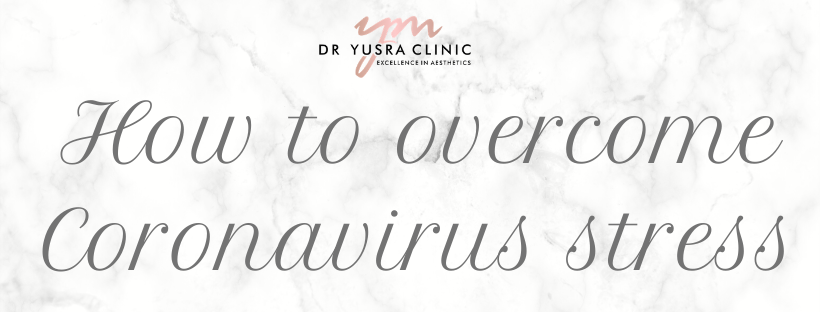
Recent studies have shown that one in four of us name stress as being the main reason we lose sleep – and these results were compiled before the Coronavirus outbreak.
Prolonged amounts of stress have been proven to cause some serious disruption to our sleep-cycles… and there are countless pieces of research naming the multitude of ways sleep deprivation affects our physical & mental well-being.
Quality sleep helps to bolster our health & immunity, so understanding how stress affects our sleep-cycles and how we can overcome / deal with it is crucial.
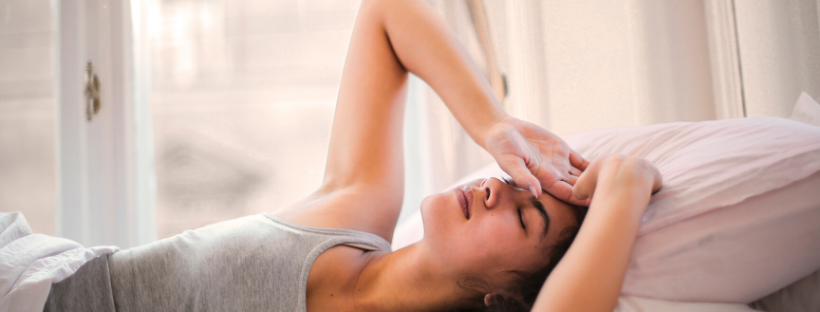
First of all, it’s important to understand what stress is.
Dr Hassan explains:
“When we feel under significant pressure or in danger, we have both a psychological and physiological response to it. This is what we refer to as stress. It is a useful tool that we have evolved to keep us alert to threats and motivate us to take action in our lives in order to reduce the pressure we may be under.
This can be helpful to us when we have to balance the demands of busy jobs, family life and whatever else may be happening in our lives. It can provide the motivation to continue to meet the demands that are set on us.
If however, these demands get too heavy stress can have negative impacts. It can affect how we feel about ourselves, how we react to situations and can even affect our relationships. It can have a significant impact on our mood and anxiety levels also.
It can have significant impacts on us physically if we have prolonged periods of stress. We may notice that the stress triggers panic attacks, in which our breathing quickens, our muscles tense and our heart rates increase. It can also cause us to lose our libido, and have an impact on our blood pressure too. All of these physical changes can make us feel dizzy, or nauseous and can bring on headaches and sometimes even chest pains. The result is often a constant feeling of exhaustion and tiredness because of it.
This can in turn make us feel very down in our mood, and some of us may actually enter a depression because of it. Constant stress can leave us feeling like there is a constant sense of dread, and worry about what lies ahead for us. This can have a knock on effect of making us not enjoy activities that we previously may have enjoyed.”
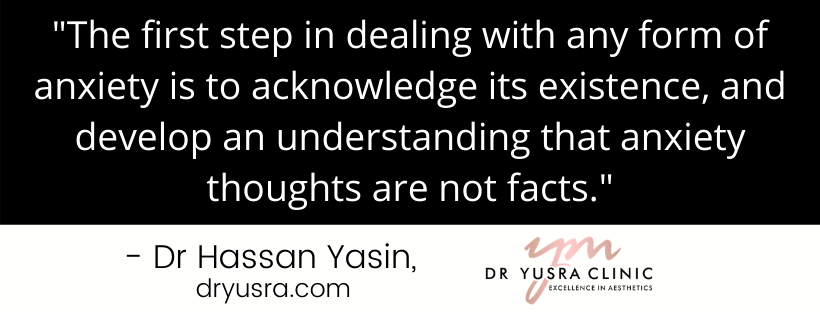
Heightened levels of stress – developed in response to the current pandemic, can affect our ability to function physically and mentally – as well as being detrimental to the quality of our sleep. And on top of that, a lack of sleep can also massively impact on our skin.
A lack of sleep can actually cause our skin to age faster, meaning we look older – not to mention the dark circles under our eyes. Dr Yusra explains more, saying:
“A lack of sleep has been linked with negatively affecting the barrier function of our skin. This barrier function is the most important function of the skin – keeping this strong keeps the bad stuff out, and the good stuff in. Lack of sleep results in a compromised barrier function; resulting in moisture loss, dehydrated and dull looking skin, and a complexion more prone to breakouts, inflammation and rashes.
During sleep your pituitary gland secretes growth factor hormones, which are necessary for collagen formation. Without appropriate sleep, this hormone diminishes and we enter the ageing process faster. During sleep, melatonin is released; which helps our skin to fight against the oxidative damage of free radicals. Skipping a good nights sleep means we get less of this essential antioxidant protecting our collagen.”
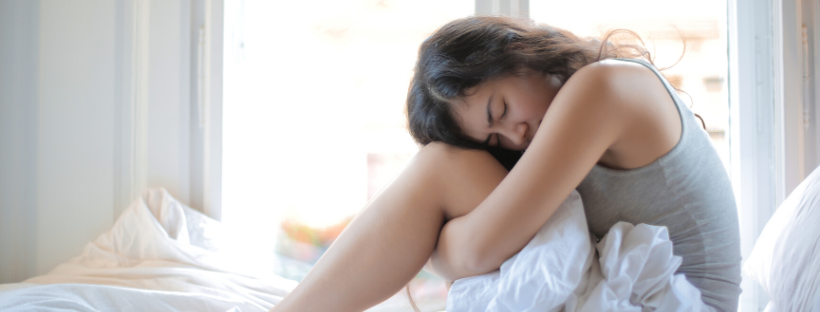
Dr Yusra continues, adding:
“A chronic lack of sleep results in chronic stress… which in turn harms the integrity of the collagen in your skin. Collagen gives your skin elastic support and when this breaks down, skin appears thinner and shows the signs of ageing… with fine lines and wrinkles appearing.
While you are asleep your skin rehydrates and recovers extra moisture. This makes sleep a natural moisturiser that helps smooth out wrinkles on the skin. Low amounts of sleep results in a drop in your skin’s PH level; causing your skin to not produce the moisture it so desperately needs, leading to dried out skin.”
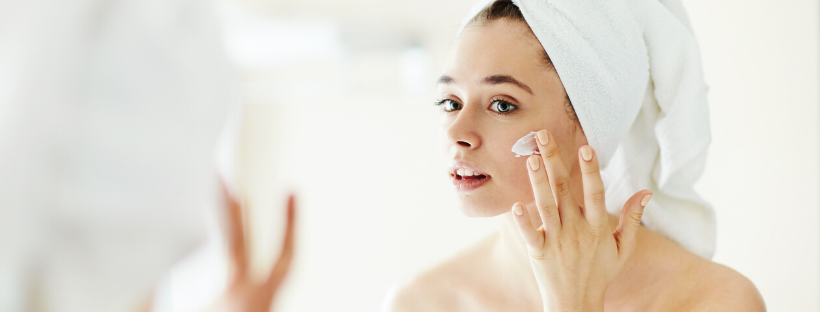
In light of the current climate – and in now better understanding of how a lack of sleep & stress can affect us mentally and physically, how should we best approach it? What can we do to deal with stress?
Dr Hassan offers the following mindfulness tips:
“There are some simple things we can start doing to deal with stressful situations:
1. Learn to challenge thoughts that may be unhelpful. If our stressful thoughts only send us into cycles of more stress, it may be time to learn to challenge these thoughts.
2. Break big tasks down into a series of smaller tasks. Sometimes we can feel overwhelmed by the sheer size of the task or journey ahead of us. When this is broken down into smaller pieces it can often start to feel more manageable.
3. Plan your projects and days ahead of time. Having a plan in place with a clear to-do list to tick off can help with the sense of being in control of a situation.
4. Practice gratitude. We can implement the practice of writing 3 positive things about our day or ourselves on a daily basis into a notebook. If this is done every day for a consistent period, we start to notice the positives more easily and focus less on the perceived negatives.
5. Talk to a friend, or get professional help. Speaking to friends or loved ones can be a really helpful outlet to relieving stress. If needed, speaking to a professional can be really helpful to learn the skills needed to manage stress.
6. Exercise. Being active can help increase our endorphin levels and also burn off some of our stressful energy.”
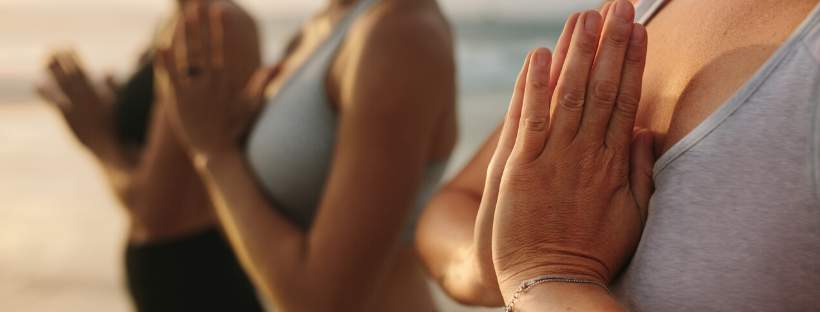
Were these tips useful to you? Would you like to hear more content like this from us? Let us know your thoughts – email info@dryusra.com or connect with us on Instagram for more.
Stay safe & stay at home,
– The Dr Yusra Team.

